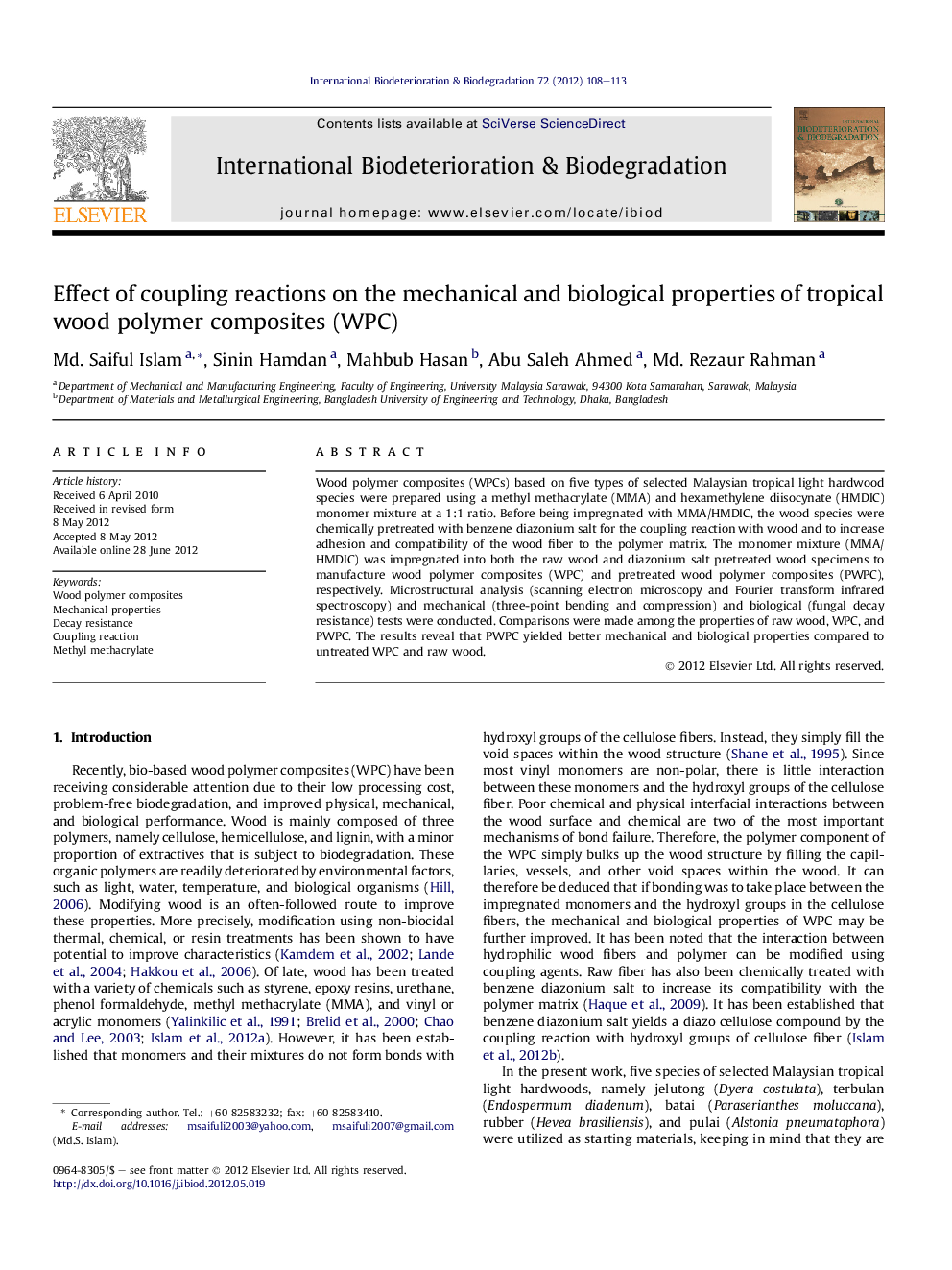| Article ID | Journal | Published Year | Pages | File Type |
|---|---|---|---|---|
| 4365167 | International Biodeterioration & Biodegradation | 2012 | 6 Pages |
Wood polymer composites (WPCs) based on five types of selected Malaysian tropical light hardwood species were prepared using a methyl methacrylate (MMA) and hexamethylene diisocynate (HMDIC) monomer mixture at a 1:1 ratio. Before being impregnated with MMA/HMDIC, the wood species were chemically pretreated with benzene diazonium salt for the coupling reaction with wood and to increase adhesion and compatibility of the wood fiber to the polymer matrix. The monomer mixture (MMA/HMDIC) was impregnated into both the raw wood and diazonium salt pretreated wood specimens to manufacture wood polymer composites (WPC) and pretreated wood polymer composites (PWPC), respectively. Microstructural analysis (scanning electron microscopy and Fourier transform infrared spectroscopy) and mechanical (three-point bending and compression) and biological (fungal decay resistance) tests were conducted. Comparisons were made among the properties of raw wood, WPC, and PWPC. The results reveal that PWPC yielded better mechanical and biological properties compared to untreated WPC and raw wood.
► Wood polymer composites (WPCs) were prepared tropical wood species. ► The effect of coupling reaction on mechanical and biological properties of WPC were investigated through FTIR, SEM, three point bending, compression and fugal decay resistance tests. ► PWPC yielded better mechanical and biological properties.
